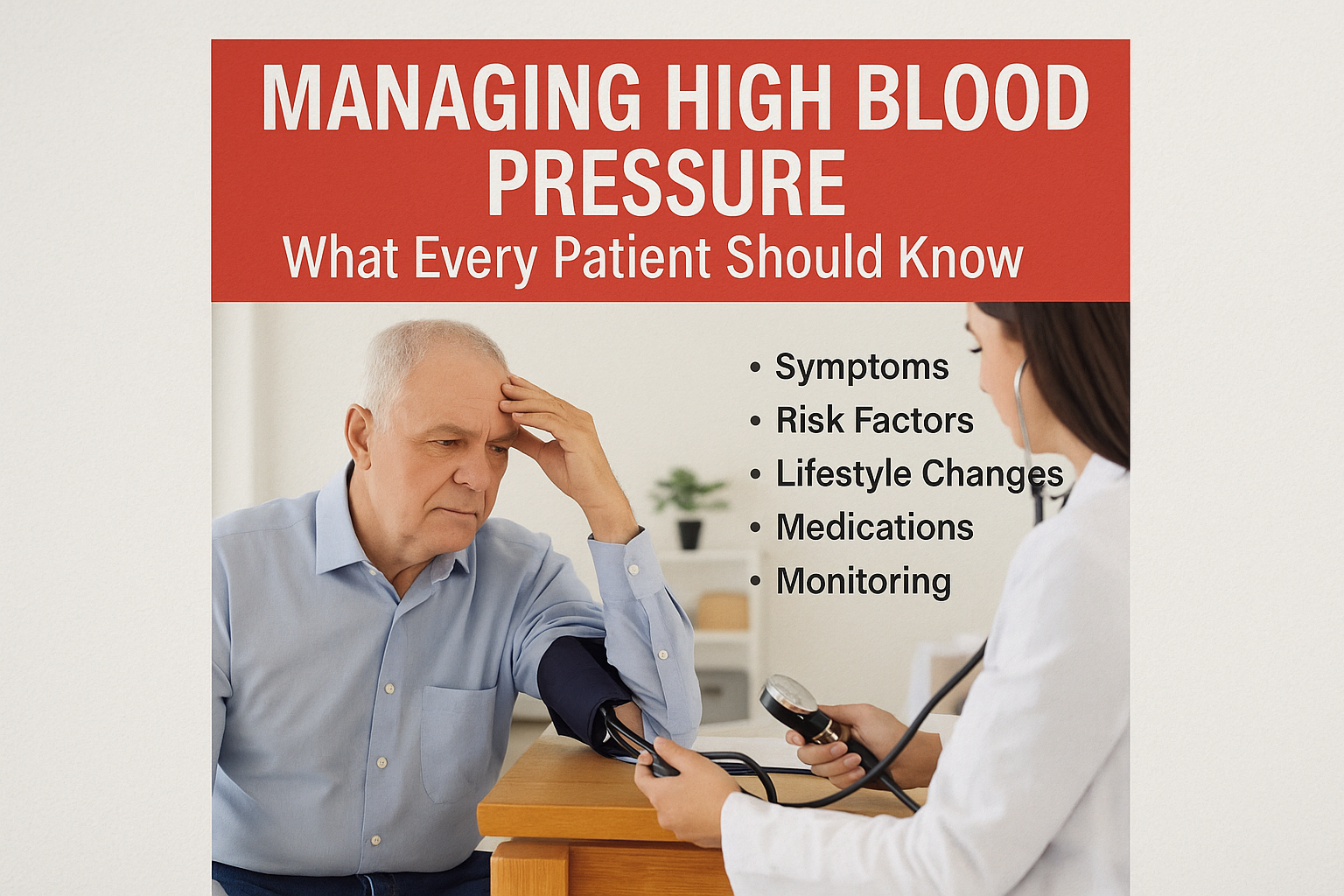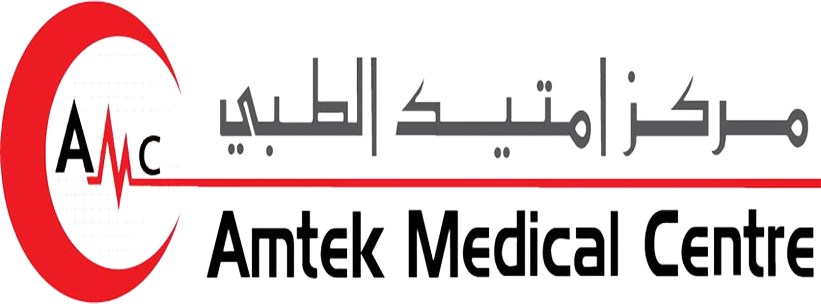
-
Posted By admin
-
-
Comments 0
Managing High Blood Pressure: What Every Patient Should Know
High blood pressure, or hypertension, is often called the silent killer because it can quietly damage your body for years before symptoms become obvious. Whether you live in Ajman, Dubai, or anywhere else in the UAE, understanding how to manage high blood pressure symptoms is essential for long-term health and well-being.
What Is High Blood Pressure?
Blood pressure is the force of your blood pushing against the walls of your arteries. It’s measured in millimeters of mercury (mmHg) and recorded with two numbers: systolic (when the heart beats) and diastolic (when the heart rests).
- Normal: Less than 120/80 mmHg
- Elevated: 120-129/<80 mmHg
- Stage 1 Hypertension: 130-139/80-89 mmHg
- Stage 2 Hypertension: 140+/90+ mmHg
- Hypertensive Crisis: 180+/120+ mmHg (Seek immediate help)
Common Symptoms of High Blood Pressure
Most people with high blood pressure may not feel any symptoms, which is why routine checkups are crucial. When symptoms do appear, they may include:
- Headaches
- Shortness of breath
- Chest pain
- Nosebleeds
- Dizziness
- Blurred vision
“Hypertension remains the leading cause of preventable death worldwide.” — World Health Organization (WHO)
Source
Causes and Risk Factors
Understanding what contributes to high blood pressure can help in prevention and management.
|
Cause / Risk Factor |
Details |
|
Unhealthy diet |
High salt, sugar, and fat intake |
|
Lack of physical activity |
Sedentary lifestyle |
|
Smoking and alcohol |
Damages arteries, raises pressure |
|
Stress |
Can cause short-term spikes in pressure |
|
Genetics |
Family history plays a significant role |
|
Age and gender |
Risk increases with age |
|
Chronic diseases |
Diabetes, kidney disease, thyroid disorders |
How to Manage High Blood Pressure Symptoms
Knowing how to manage high blood pressure symptoms begins with lifestyle modifications and medical guidance. Here’s a breakdown of effective strategies:
1. Adopt a Heart-Healthy Diet
A DASH (Dietary Approaches to Stop Hypertension) diet is clinically proven to lower blood pressure. Focus on:
- Whole grains, fruits, and vegetables
- Low-fat dairy, lean protein
- Limiting salt and processed foods
- Staying hydrated
2. Stay Active
At least 30 minutes of moderate-intensity exercise (like brisk walking) five times a week helps lower blood pressure naturally.
3. Monitor Your Blood Pressure Regularly
Regular blood pressure checkup in Ajman or your local clinic can help track changes and inform treatment decisions.
4. Reduce Stress
Chronic stress may contribute to high blood pressure. Consider:
- Breathing exercises
- Meditation or yoga
- Adequate sleep
- Reducing screen time
5. Avoid Tobacco and Limit Alcohol
Nicotine raises your blood pressure immediately. Quitting smoking and reducing alcohol intake are vital steps.
6. Take Medications as Prescribed
Your doctor may prescribe:
- ACE inhibitors
- Beta-blockers
- Calcium channel blockers
- Diuretics
Never skip or self-adjust your medication. Consult your doctor regularly.
When to See a Doctor
Visit a general practitioner if you:
- Frequently experience headaches or dizziness
- Have a family history of hypertension
- Have been diagnosed and feel unwell despite treatment
- Need a routine evaluation or prescription update
Early detection can save lives.
Key Takeaways
- High blood pressure is often symptomless but dangerous.
- Diet, exercise, stress management, and medication help control it.
- Routine checkups are critical to tracking progress.
- Managing high blood pressure improves overall heart health.
- Personalized treatment plans are available in Ajman and across the UAE.
FAQs
Q1. What is the best way to start managing high blood pressure?
A: Begin with lifestyle changes such as improving diet, exercising, and regular blood pressure monitoring. Consult a doctor for a personalized plan.
Q2. Can high blood pressure be cured completely?
A: It may not be cured but can be effectively managed with lifestyle adjustments and medication.
Q3. How often should I check my blood pressure at home?
A: If you’re diagnosed, daily monitoring is often recommended, especially when starting or adjusting medication.
Q4. Are there specific foods I should avoid?
A: Yes, avoid high-sodium foods, processed snacks, sugary drinks, and foods high in saturated fat.
Q5. Is medication necessary for everyone with high blood pressure?
A: Not always. In early stages, lifestyle changes may suffice. For moderate to severe hypertension, medication is typically required.
If you’re looking to take control of your health and learn how to manage high blood pressure symptoms, Amtek Medical offers comprehensive diagnostic and treatment services in Ajman. Don’t wait—start your journey toward a healthier heart today.


